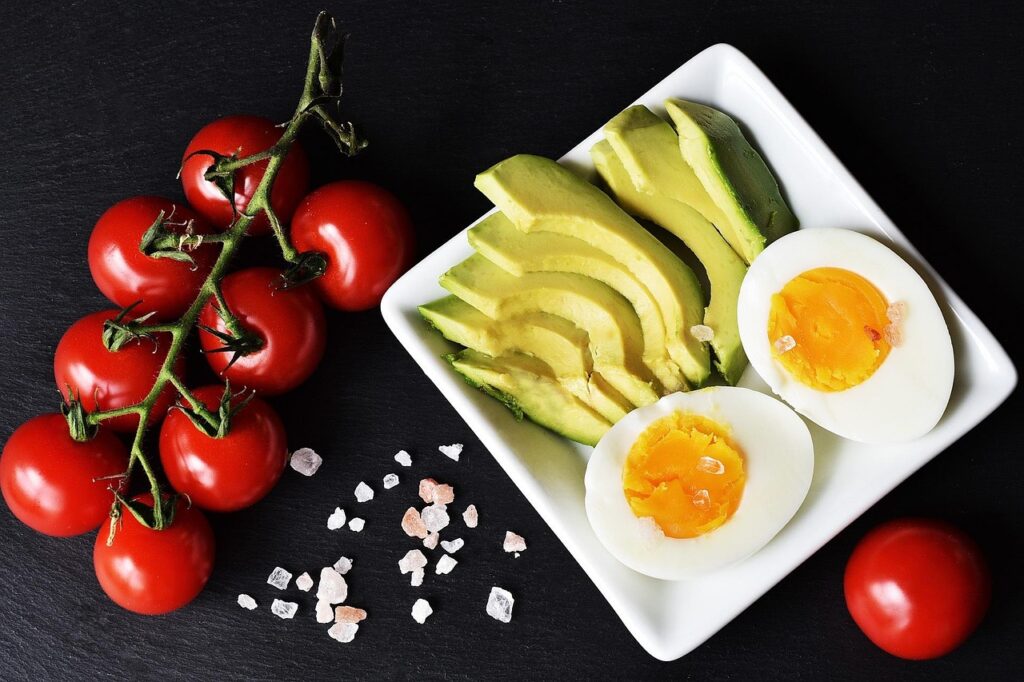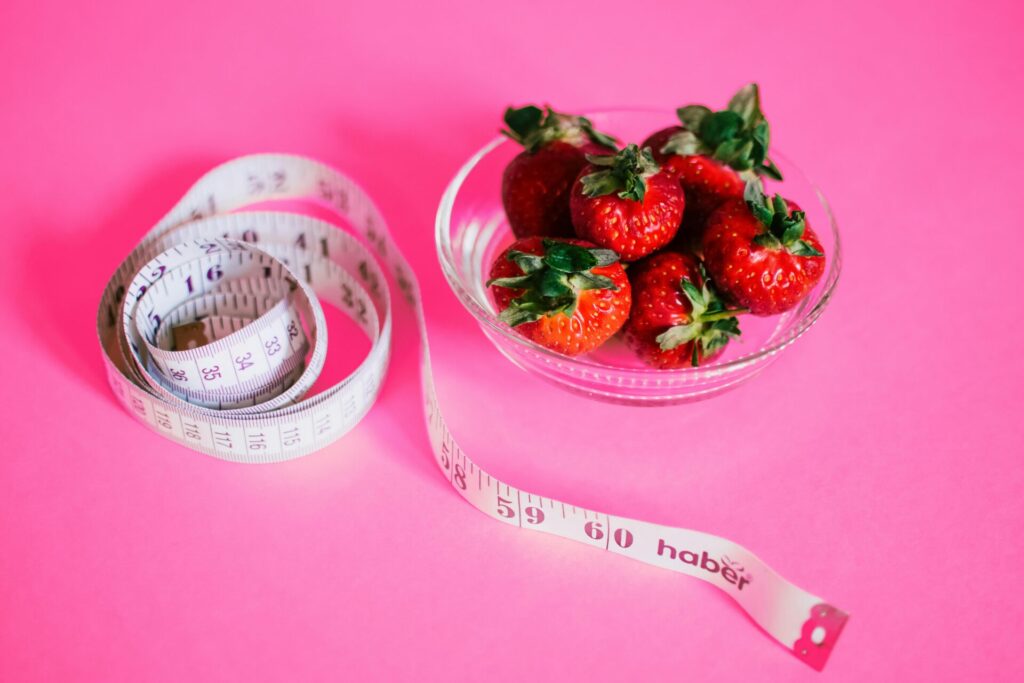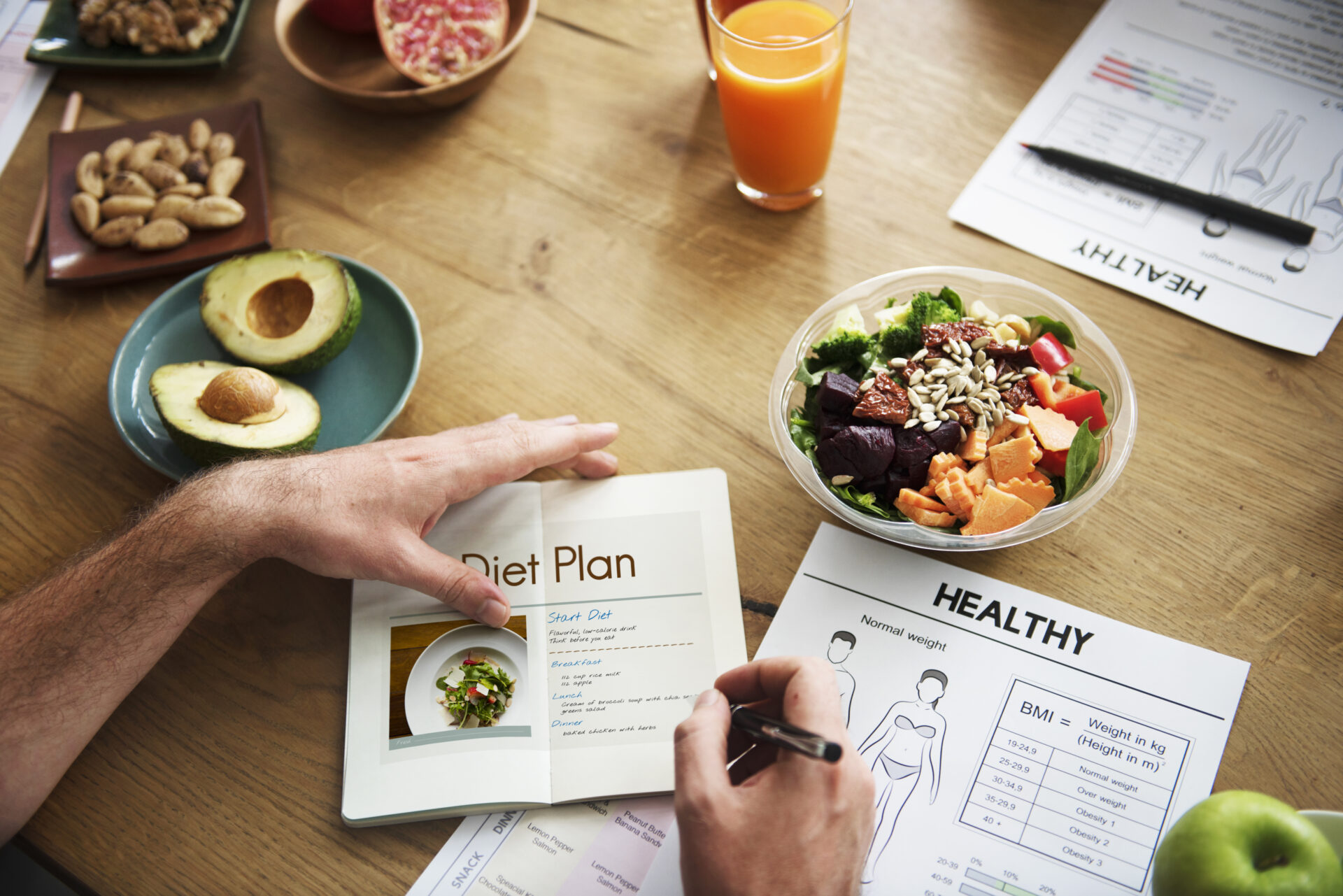How to Build a Sustainable Weight Loss Plan Without Dieting: A Lifestyle Approach That Lasts
Contents
- 1 How to Build a Sustainable Weight Loss Plan Without Dieting: A Lifestyle Approach That Lasts
- 1.0.0.0.0.1 Read DISCLAIMER
- 1.0.0.0.0.2 The material presented here is for general informational and educational purposes only and is not medical advice. Although we attempt to provide current and accurate information, this blog should not be used as a replacement for professional medical consultation, diagnosis, or treatment. In all cases, consult your physician or an accredited medical practitioner with regards to any medical condition or treatment. Do not ignore professional medical advice or wait for it on the basis of information provided by this blog. In a medical emergency, call emergency services immediately.
- 1.1 Understanding Why Diets Don’t Work Long-Term
- 1.2 Shifting the Goal from “Weight Loss” to “Health Gain”
- 1.3 Building the Foundation: Small Changes, Big Impact
- 1.4 Eating for Nourishment Instead of Restriction
- 1.5 The Power of Mindful Eating
- 1.6 Movement as a Lifestyle, Not a Punishment
- 1.7 Prioritizing Sleep for Weight and Energy Balance
- 1.8 Managing Stress to Prevent Emotional Eating
- 1.9 Creating an Environment That Supports Your Goals
- 1.10 Being Patient and Compassionate with Yourself
- 1.11 Celebrating Non-Scale Victories
- 1.12 Final Thoughts: Your Body, Your Pace
- 1.13 FAQs with Answers
Discover how to achieve lasting weight loss without dieting by building a sustainable, healthy lifestyle that works with your body, not against it.
Read DISCLAIMER
The material presented here is for general informational and educational purposes only and is not medical advice. Although we attempt to provide current and accurate information, this blog should not be used as a replacement for professional medical consultation, diagnosis, or treatment. In all cases, consult your physician or an accredited medical practitioner with regards to any medical condition or treatment. Do not ignore professional medical advice or wait for it on the basis of information provided by this blog. In a medical emergency, call emergency services immediately.
Losing weight often feels like being trapped in an endless cycle of restrictions, calorie counting, and “quick-fix” promises that leave you more frustrated than when you began. You start with good intentions, maybe even lose some weight, but then life happens — stress, social events, and cravings creep in. Before you know it, you’re right back where you started, sometimes with even more weight than before.
This is the reality for millions of people who turn to rigid dieting as their primary strategy. But here’s the truth that the weight-loss industry doesn’t often highlight: lasting weight loss isn’t about dieting at all — it’s about creating a sustainable lifestyle that naturally supports your body’s healthy weight.
In this guide, we’ll explore exactly how to build a sustainable weight loss plan without falling into the trap of dieting. You’ll learn how to nourish your body, train your mind, and design a life that allows you to feel strong, energized, and confident — without obsessing over every bite you eat.

Understanding Why Diets Don’t Work Long-Term
The word “diet” often triggers thoughts of deprivation and temporary change. Most popular diets focus on external rules — eat this, avoid that, limit yourself to a set number of calories — without addressing the deeper habits, mindset, and environment that influence your weight over the long run.
When you follow a restrictive plan, your body can initially shed pounds. However, diets also activate your body’s natural defense mechanisms against perceived famine. Your metabolism slows down to conserve energy, hunger hormones increase, and cravings intensify. Eventually, the mental strain of strict rules leads to slip-ups, feelings of guilt, and abandoning the plan altogether.
This rebound effect is not a sign of personal weakness — it’s biology. The problem isn’t that you lack willpower; it’s that traditional dieting forces you into an unsustainable battle with your own physiology.
Shifting the Goal from “Weight Loss” to “Health Gain”
One of the most powerful ways to escape the diet cycle is to shift your mindset. Instead of focusing on how quickly you can lose weight, focus on how you can gain health — more energy, better sleep, improved mood, and a stronger body.
This shift changes your motivation from punishment to self-care. You start making food and lifestyle choices because they help you feel better now, not just because they might change how you look weeks from now. Ironically, when you focus on health instead of the scale, sustainable weight loss often follows naturally.
Building the Foundation: Small Changes, Big Impact
A sustainable weight loss plan doesn’t require an overnight transformation. It’s about building a foundation of small, realistic changes that compound over time. Think of it like planting a tree — you can’t force it to grow instantly, but with the right environment and consistent care, it thrives.
For example, you might start by improving the quality of your breakfasts. Instead of a sugar-heavy pastry, you choose a protein-rich option like eggs or Greek yogurt paired with fruit. This small shift can stabilize your energy, reduce mid-morning cravings, and make it easier to make better choices throughout the day.
These “micro-changes” work because they’re easy to sustain. Once a habit feels natural, you layer in another, such as adding a short daily walk or increasing your water intake. Over time, these small actions create lasting transformation without overwhelming your willpower.

Eating for Nourishment Instead of Restriction
When building a weight loss plan without dieting, your goal is to nourish your body with foods that keep you full, energized, and satisfied. This is very different from eating as little as possible or cutting out entire food groups.
Focus on whole, minimally processed foods — fresh fruits and vegetables, lean proteins, healthy fats, and complex carbohydrates. These foods are nutrient-dense, meaning they provide vitamins, minerals, and fiber without excessive empty calories.
An easy way to approach meals is to think in terms of balance rather than rules. A plate with colorful vegetables, a quality protein source, and a small serving of healthy fat will keep you fuller for longer and help stabilize blood sugar. Over time, your cravings for processed, high-sugar foods naturally decrease because your body is getting what it truly needs.
The Power of Mindful Eating
Mindless eating is one of the biggest contributors to weight gain — think eating while watching TV, scrolling on your phone, or working at your desk. When your attention is elsewhere, it’s easy to overeat because you’re disconnected from your body’s hunger and fullness cues.
Mindful eating means slowing down, savoring each bite, and paying attention to how food makes you feel. It’s about being present in the moment and eating with intention, not habit.
You might notice that you feel satisfied sooner than you expected, or that certain foods leave you feeling sluggish. Over time, mindful eating helps you naturally eat less without feeling deprived, because you’re tuning into your body’s real needs.

Movement as a Lifestyle, Not a Punishment
Exercise is often framed as a way to “burn off” food, but this approach can turn movement into a chore you dread. To create a sustainable plan, think of movement as a way to care for your body, boost your mood, and increase your energy — not as a form of punishment.
Choose activities you genuinely enjoy. If the gym bores you, try dancing, hiking, swimming, or group classes. When exercise is fun, you’re far more likely to stick with it long term.
Also, remember that daily movement doesn’t have to mean intense workouts. Walking, stretching, gardening, or playing with your kids all contribute to an active lifestyle. The key is consistency, not perfection.
Prioritizing Sleep for Weight and Energy Balance
Sleep is one of the most underrated factors in sustainable weight loss. When you’re sleep-deprived, your body produces more hunger hormones like ghrelin and fewer satiety hormones like leptin. This makes it harder to control cravings, especially for high-calorie, sugary foods.
Quality sleep also supports muscle recovery, hormone balance, and stress regulation — all essential for healthy weight management. Aim for a consistent sleep routine by going to bed and waking up at the same times each day, creating a relaxing pre-bed ritual, and keeping your sleeping environment cool and dark.
Managing Stress to Prevent Emotional Eating
Stress triggers the release of cortisol, a hormone that can increase appetite and drive fat storage, especially around the midsection. When stress becomes chronic, it can lead to emotional eating, where food becomes a source of comfort rather than nourishment.
Finding healthy stress-management tools is crucial for long-term success. This could mean practicing meditation, journaling, deep breathing, or engaging in hobbies you love. Even short breaks to stretch, walk, or simply breathe can interrupt the stress-eating cycle.

Creating an Environment That Supports Your Goals
Your environment plays a massive role in your habits. If your pantry is full of processed snacks and sugary drinks, you’re more likely to reach for them out of convenience. By stocking your home with nourishing foods and keeping tempting treats out of sight, you make healthy choices the path of least resistance.
Surround yourself with people who support your lifestyle changes. Social pressure can work both ways — being around those who encourage your health goals makes it easier to stay consistent, while constant exposure to negative influences can pull you back into old habits.
Being Patient and Compassionate with Yourself
Building a sustainable weight loss plan without dieting takes time. There will be weeks when your progress feels slow, and moments when old habits resurface. This is normal.
Instead of criticizing yourself for slip-ups, see them as learning opportunities. Ask yourself what triggered the behavior and how you can handle it differently next time. Self-compassion not only reduces the emotional toll of setbacks but also keeps you motivated to continue.
Remember, sustainable weight loss is not a sprint — it’s a journey of building a healthier relationship with food, movement, and your body.
Celebrating Non-Scale Victories
When you stop obsessing over the scale, you open the door to other, more meaningful measures of progress. Maybe your clothes fit better, your energy is more stable, or your mood has improved. These non-scale victories are signs that your lifestyle changes are working, even if the number on the scale moves slowly.
By focusing on how you feel rather than just how you look, you create a more positive and empowering weight loss experience.
Final Thoughts: Your Body, Your Pace
Sustainable weight loss without dieting is about creating a life you enjoy living — one that naturally supports a healthy weight without constant restriction or stress.
When you nourish your body, move in ways you love, prioritize rest, manage stress, and shape an environment that supports your goals, weight loss becomes a byproduct of living well. It stops being a battle and starts being a partnership between you and your body.
This isn’t a “plan” you’ll quit in a few weeks — it’s a lifestyle you can carry for the rest of your life. And that’s the true secret to lasting results.
FAQs with Answers
- Can I really lose weight without following a strict diet?
Yes, you can lose weight without strict diets by focusing on balanced meals, mindful eating, and healthy lifestyle habits. Diets are often temporary and restrictive, while lifestyle changes address the root causes of weight gain, making results more sustainable. - How long does sustainable weight loss usually take?
Sustainable weight loss is gradual, often taking several months to a year to see significant changes. The slower pace helps your body adapt, making it easier to maintain the results for life without constant restriction. - What should I focus on instead of calorie counting?
Instead of obsessively counting calories, focus on the quality of your food, portion awareness, and eating until comfortably satisfied. This allows you to nourish your body without feeling deprived or overly controlled. - Is exercise necessary for losing weight without dieting?
Exercise supports weight loss by improving metabolism, building lean muscle, and boosting mood. However, movement should be enjoyable and consistent rather than an intense, punishing routine. - Can I eat my favorite foods on a sustainable weight loss plan?
Yes, you can enjoy your favorite foods in moderation. The key is balance — allowing occasional treats helps you maintain your plan without feeling deprived, which can prevent binge eating later. - How important is sleep for weight loss?
Sleep plays a crucial role in weight loss by regulating hunger hormones, reducing cravings, and improving energy for physical activity. Lack of sleep can slow progress and lead to weight gain. - What role does stress play in weight management?
Chronic stress can increase cortisol, a hormone that encourages fat storage and appetite. Learning to manage stress with healthy coping mechanisms can make weight loss easier and more consistent. - Do I need to avoid carbohydrates to lose weight?
No, carbohydrates are not the enemy. Choosing complex carbs like whole grains, vegetables, and legumes provides energy and nutrients, while refined carbs should be limited for better blood sugar control. - How can I stay motivated during slow progress?
Celebrate non-scale victories such as better energy, improved mood, or looser clothing. Recognizing these changes keeps you motivated when the scale isn’t moving quickly. - Will eating more frequently help me lose weight?
Eating balanced meals and snacks throughout the day can stabilize blood sugar and prevent overeating later. The key is nutrient-rich choices, not just frequency. - How can I practice mindful eating?
Mindful eating involves slowing down, savoring each bite, and paying attention to hunger and fullness cues. It helps prevent overeating and improves digestion. - Do I need to track my food to succeed?
Tracking can help in the beginning to increase awareness of habits, but it’s not necessary long-term. The goal is to develop intuitive eating skills you can sustain without logging every meal. - Can I lose weight without going to the gym?
Absolutely. Everyday activities like walking, cycling, dancing, or gardening can support weight loss. The key is consistent movement, not a specific location or workout style. - How do I handle social events without overeating?
Plan ahead by eating a balanced snack before the event, staying hydrated, and choosing smaller portions. Enjoy the experience without guilt by focusing on the social aspect rather than just the food. - What’s the biggest difference between dieting and a sustainable plan?
Diets are temporary and rule-based, often leading to rebound weight gain. A sustainable plan is flexible, enjoyable, and centered on long-term habits that support your health naturally.

That’s a solid point about responsible gaming – crucial in this space! Seeing platforms like fair play login app prioritize security & quick deposits (GCash is a win!) builds trust. Definitely a growing market!